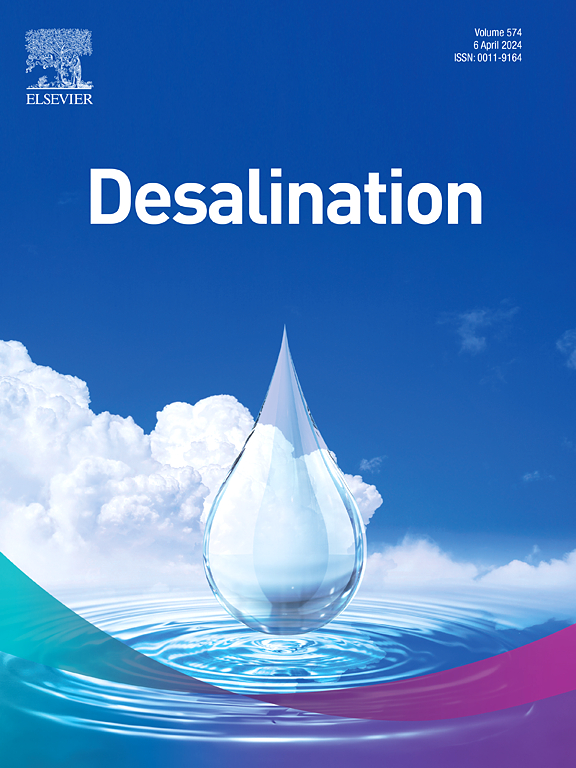Selective preparation of CoNi (111) crystal plane to improve hydrogen production by water electrolysis
IF 9.8
1区 工程技术
Q1 ENGINEERING, CHEMICAL
引用次数: 0
Abstract
The development of hydrogen energy can significantly reduce reliance on fossil fuels by providing a sustainable hydrogen production pathway. The aim of this study is to selectively prepare CoNi (111) crystal plane catalyst instead of other crystal planes from nickel‑cobalt containing waste to improve the properties of hydrogen evolution reaction by electrolytic water. During the catalyst preparation process, the reduction order and reduction efficiency of Ni2+, Co2+ and H2O in the nickel‑cobalt containing waste leachate were controlled to regulate the electrodeposition of Ni2+ and Co2+, and the generation of crystal planes of CoNi(111). According to the electrocatalytic performance test, the prepared catalyst under conditions of 10 min, c(Ni2+) = 0.05 mol/L, 40 mA/cm2, m(NiSO4): m(CoSO4) = 1:1 has excellent activity, an overpotential of 16.5 mV is required at a current density of 10 mA/cm2, and a Tafel slope of 66.5 mV/dec. In this work, using nickel‑cobalt-containing waste as a raw material for catalyst synthesis can not only reduce the cost, but also reduce the harm to the environment. Therefore, this study provides an environmentally friendly and economical method for the preparation of a high-performance and low-cost catalyst for hydrogen evolution reaction.
选择性制备CoNi(111)晶面以提高水电解产氢率
氢能的发展可以通过提供可持续的制氢途径,显著减少对化石燃料的依赖。本研究的目的是利用含镍-钴废弃物选择性制备CoNi(111)晶面催化剂代替其他晶面,以改善电解水析氢反应的性能。在催化剂制备过程中,控制含镍钴垃圾渗滤液中Ni2+、Co2+和H2O的还原顺序和还原效率,从而调控Ni2+和Co2+的电沉积,以及CoNi晶面的生成(111)。电催化性能测试表明,制备的催化剂在10 min、c(Ni2+) = 0.05 mol/L、40 mA/cm2、m(NiSO4): m(CoSO4) = 1:1条件下具有优异的催化活性,在电流密度为10 mA/cm2时需要过电位16.5 mV, Tafel斜率为66.5 mV/dec。在本工作中,利用含镍钴废物作为催化剂合成的原料,不仅可以降低成本,还可以减少对环境的危害。因此,本研究为制备高性能、低成本的析氢反应催化剂提供了一种环保、经济的方法。
本文章由计算机程序翻译,如有差异,请以英文原文为准。
求助全文
约1分钟内获得全文
求助全文
来源期刊

Desalination
工程技术-工程:化工
CiteScore
14.60
自引率
20.20%
发文量
619
审稿时长
41 days
期刊介绍:
Desalination is a scholarly journal that focuses on the field of desalination materials, processes, and associated technologies. It encompasses a wide range of disciplines and aims to publish exceptional papers in this area.
The journal invites submissions that explicitly revolve around water desalting and its applications to various sources such as seawater, groundwater, and wastewater. It particularly encourages research on diverse desalination methods including thermal, membrane, sorption, and hybrid processes.
By providing a platform for innovative studies, Desalination aims to advance the understanding and development of desalination technologies, promoting sustainable solutions for water scarcity challenges.
 求助内容:
求助内容: 应助结果提醒方式:
应助结果提醒方式:


